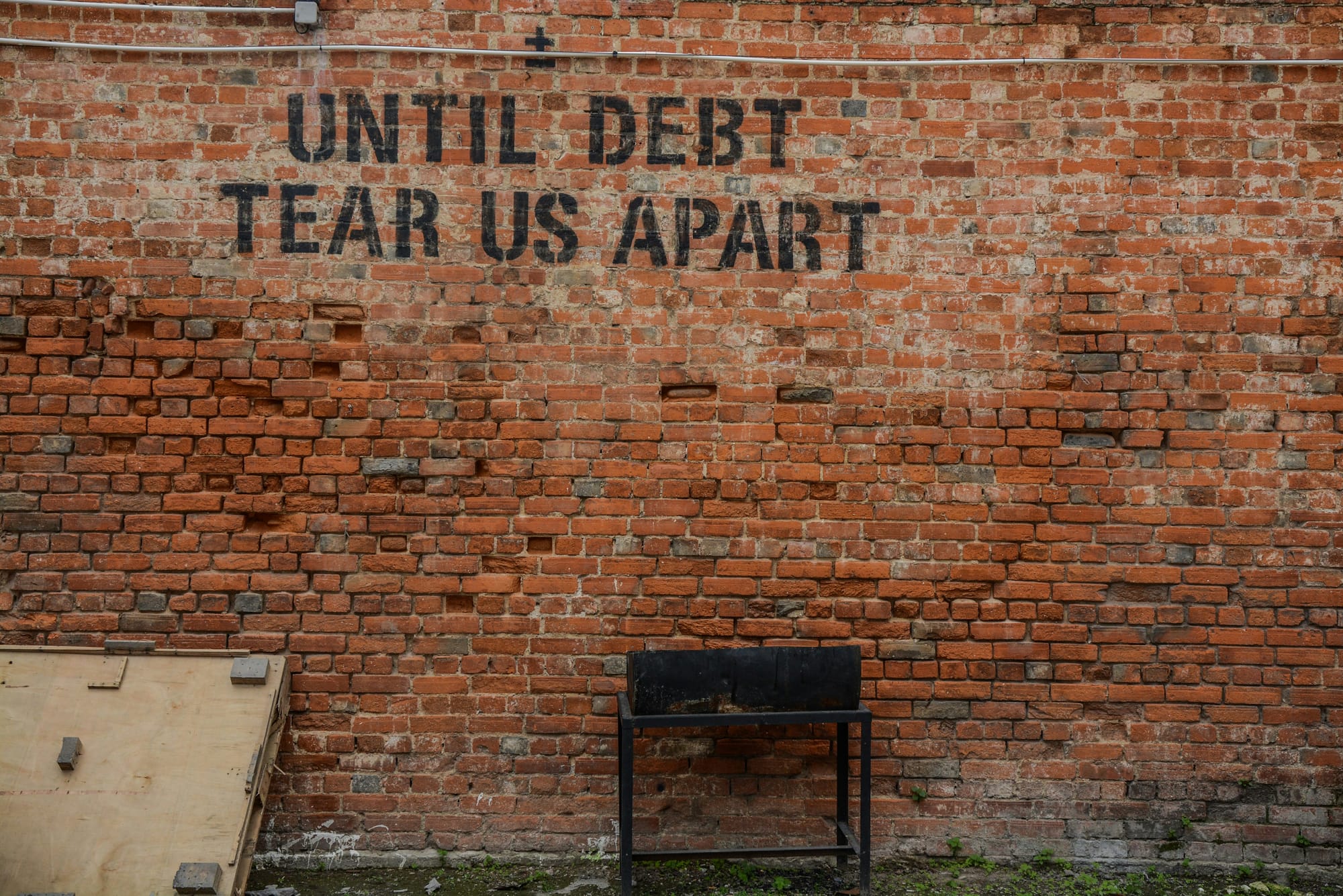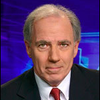Are You Better Off?
If you care about the country's debt, read this.

No, I'm not going to talk about the BIG DEBATE this week. My fellow outlaw Chris Newlin has that assignment. Although, I will say as a former high school and college debater, I know a trap when I see one and it was laid and executed perfectly.
And no, I'm not going to address the remarkably desperate "Haitians eating pets" twaddle being peddled by the folks who fell into that debate trap. The fact that they persist in their racist promotion of this claptrap should be frankly disqualifying, and for some reason it isn't. But, for the record, this is the standard Haitian diet...
Staple Foods
Meat/Poultry/Fish: beef, pork, goat, chicken, turkey, and a variety of fish
Eggs/Legumes: chicken eggs; a variety of beans such as black beans, black-eyed peas, chickpeas, soybean, red beans
Cereals/Grains: cassava, cornmeal, short-grain rice, wheat Fruits: akee, avocados, bananas and plaintains, breadfruit, cashew apple, coconut, guava, soursop, jackfruit, lemons, limes, mangoes, papayas, pineapple
Vegetables: arracacha, arrowroot, cabbage, calabeza, cassava, chiles, corn, djon-djon mushrooms, peppers, potatoes, squashes, sweet potatoes
Seasonings: anise, annatto, bay leaf, chiles, cinnamon, coui, garlic, onions, pimento, recao, thyme
It is most certainly not what every official in Ohio seemingly, is asking the candidates to stop...

And the only guy I know of who has eaten a dog is RFK Jr.

No, I'd like to address this week's missive to my conservative , OK, and liberal friends who are worried about our economy, and most importantly a debt that is approaching unsustainability. Let me start with the perennial Reagan question, and more on Reagan in a moment. "Are you better off than you were 4 years ago?"
Four years ago, around election time...
Over 10,000 Americans were dying every week from Covid 19.
Schools were closed.
People worked from home.
Restaurants were closed.
Zoom meetings were the norm for business and education. I have mentioned before, I had to run a TV newsroom from my study over Zoom.
No vacations, no anniversary dinners, no trips to the barber or stylist.
We were using freezer trucks for morgues and wiping our nethers with coffee filters.
But hey, gas was cheap. Good times. Well, OK, it was cheap because no one was driving, but cheap is cheap, right?
So, that seemingly tough question has a simple answer, but Harris and Walz can't seem to put together the list I just assembled in 5 minutes. But, I'll leave that to the campaign experts.
Right now, back to my fiscally conservative friends on both sides of the partisan aisle. First, we need to disabuse you of any fantasies you have about how this economy works. Let's start with Reaganomics, supply-side, trickle down. The product of the ironically named "economist" Arthur Laffer, the so-called Laffer curve predicted that if you cut taxes, businesses would reinvest, salaries would rise along with productivity and the government would get back the lost revenue and then some, making it self-funding.

So, President Reagan bought in, cut taxes, and anticipating a big revenue boost, began spending prodigiously on defense, primarily. In a couple of years, the annual budget deficit tripled. So, how the hell did it go wrong? Budget Director David Stockman brought them all the bad news in a meeting in 1982.
When campaigning against Reagan in the 1980 primaries, George H.W. Bush called Reagan's plan "Voodoo Economics." After listening to Stockman's presentation, Chief of Staff James Baker remarked, "So, it really is voodoo?"

Yes it was, and a series of tax increases followed to make up for lost revenue. And, by the way, tax cuts have never paid for themselves...never.
Ironically, the deficit had been going down under President Carter, but that ended in 1980. If it was defense, it was approved. The frankly redundant B-1 bomber, for example, was revived after Carter killed it knowing that stealth aircraft and cruise missiles were on the way making a supersonic, penetration bomber unnecessary. This prudence was portrayed as weakness, of course.
But this having and eating cake scenario has persisted among my Republican brethren and sisteren ever since. The late, and definitely great Texas writer Molly Ivins once told me we elect Democrats to give us stuff and Republicans so we don't have to pay for it. So, when President George H.W. Bush was facing another recession, he had to break his "no new taxes" pledge.
On November 5, 1990, Bush signed the Omnibus Budget Reconciliation Act of 1990. Among other provisions, this raised multiple taxes. The law increased the maximum individual income tax rate from 28 percent to 31 percent, and raised the individual alternative minimum tax rate from 21 percent to 24 percent.
And of course, in 1992, he lost. Then President Clinton had to do the same thing, along with cutting the budget. He had help from Republicans in Congress and over complaints from some in his own party he got the US budget into surplus for the first time since LBJ. That, of course, went away with the election of W.
Seeing the surplus, GW wisely figured, we are paying too much in taxes and cut them. Forget the overall national debt we could have started whittling away on. "Hey, I got a raise and even though the roof needs fixing, I'm going to buy a new boat."
And of course, we went right back into deficit spending.

So, how do the Trump and Harris proposals, so much as we can divine, match up on reducing debt, which every one in Congress keeps saying is a big priority?
Trump is relying almost exclusively on tariffs for increased revenue, while offering tax cuts for all with no taxes on overtime pay or tips either. Of course, contrary to what he says, China, for example, doesn't pay the tariff, the importer, say WalMart, does. And WalMart does what then? They have to raise prices.
Harris is counting on tax hikes on the wealthy and tax cuts for the middle class with big gifts for first time home buyers, small business startups and new parents. Will Congress vote these new taxes? The odds are a resounding no. Will any Harris administration be strong enough to say we can't do the stuff I promised? History tells us no politician can back away from the largesse they regurgitated on the campaign trail. That means debt.
How do the plans compare in terms of debt? Donald Trump is very proud of having attended the Wharton School of Business at the University of Pennsylvania, and well he should be. It is one of the most prestigious in the educational firmament. Here is their quick and dirty summary of the two approaches, debt-wise. And this analysis is based on both candidates getting the cuts and increases they want.
The Harris Campaign tax and spending proposals would increase primary deficits by $1.2 trillion over the next 10 years on a conventional basis and by $2.0 trillion on a dynamic basis that includes a reduction in economic activity. Lower and middle-income households generally benefit from increased transfers and credits on a conventional basis, while higher-income households are worse off.
We estimate that the Trump Campaign tax and spending proposals would increase primary deficits by $5.8 trillion over the next 10 years on a conventional basis and by $4.1 trillion on a dynamic basis that includes economic feedback effects. Households across all income groups benefit on a conventional basis.
So, $1.2 trillion versus $5.8. Are these numbers written in stone? Of course not. There is so much more to promise to individual interest groups over the next month and a half. My purpose here is to simply say, be careful what you wish for.
But then again, 4 years ago, gas was so cheap.
